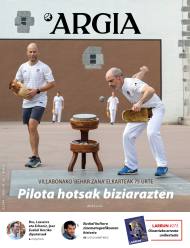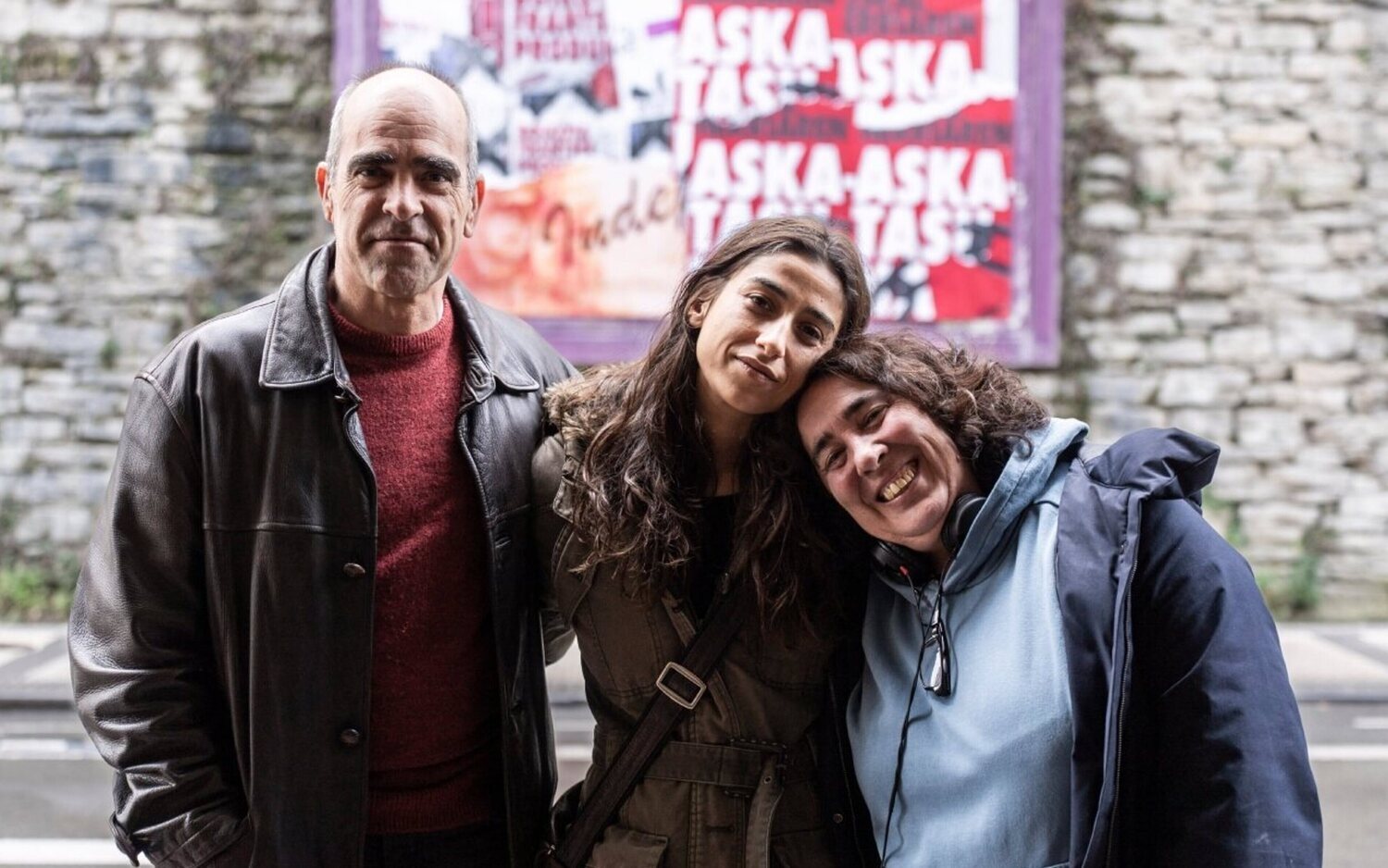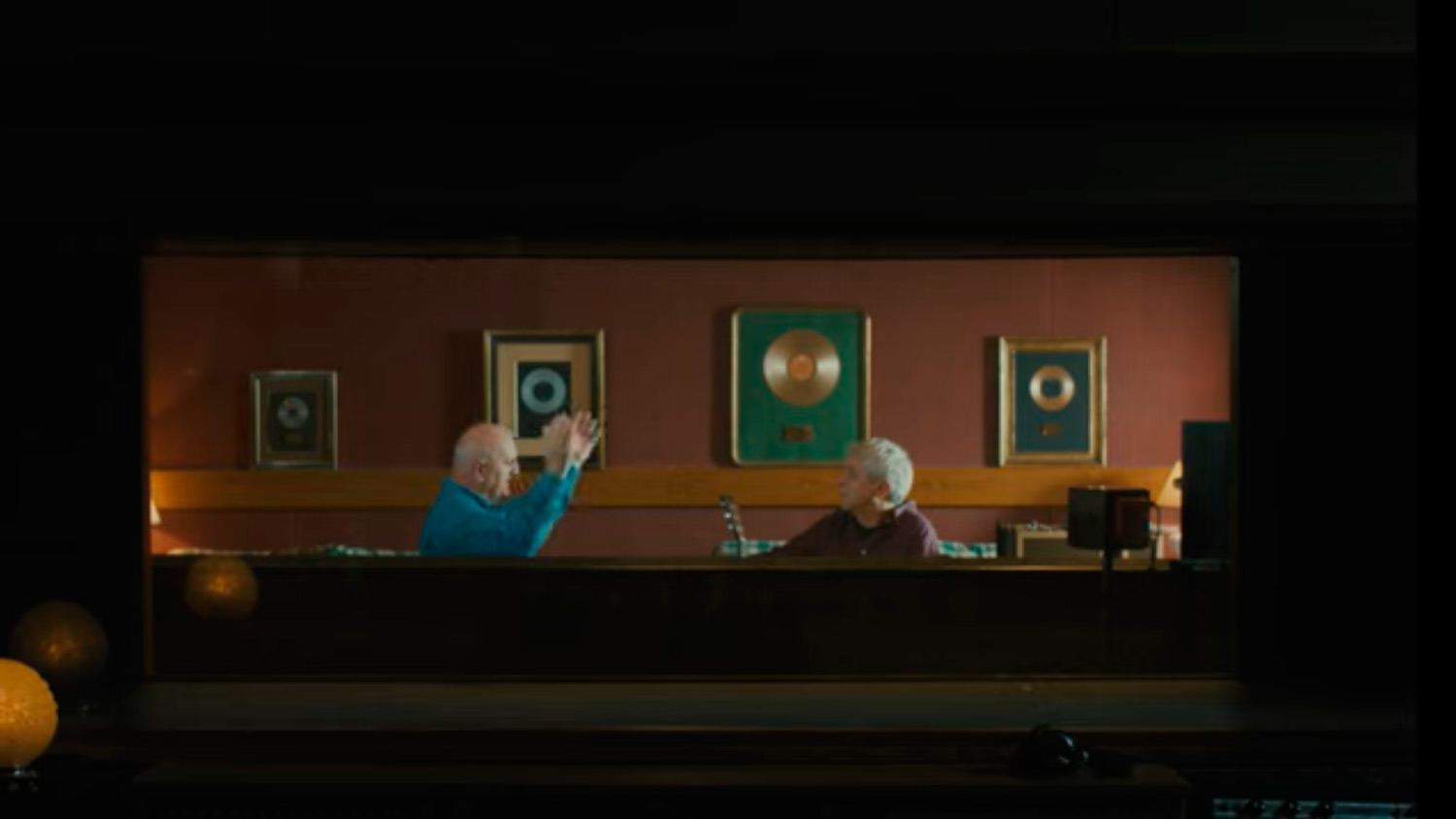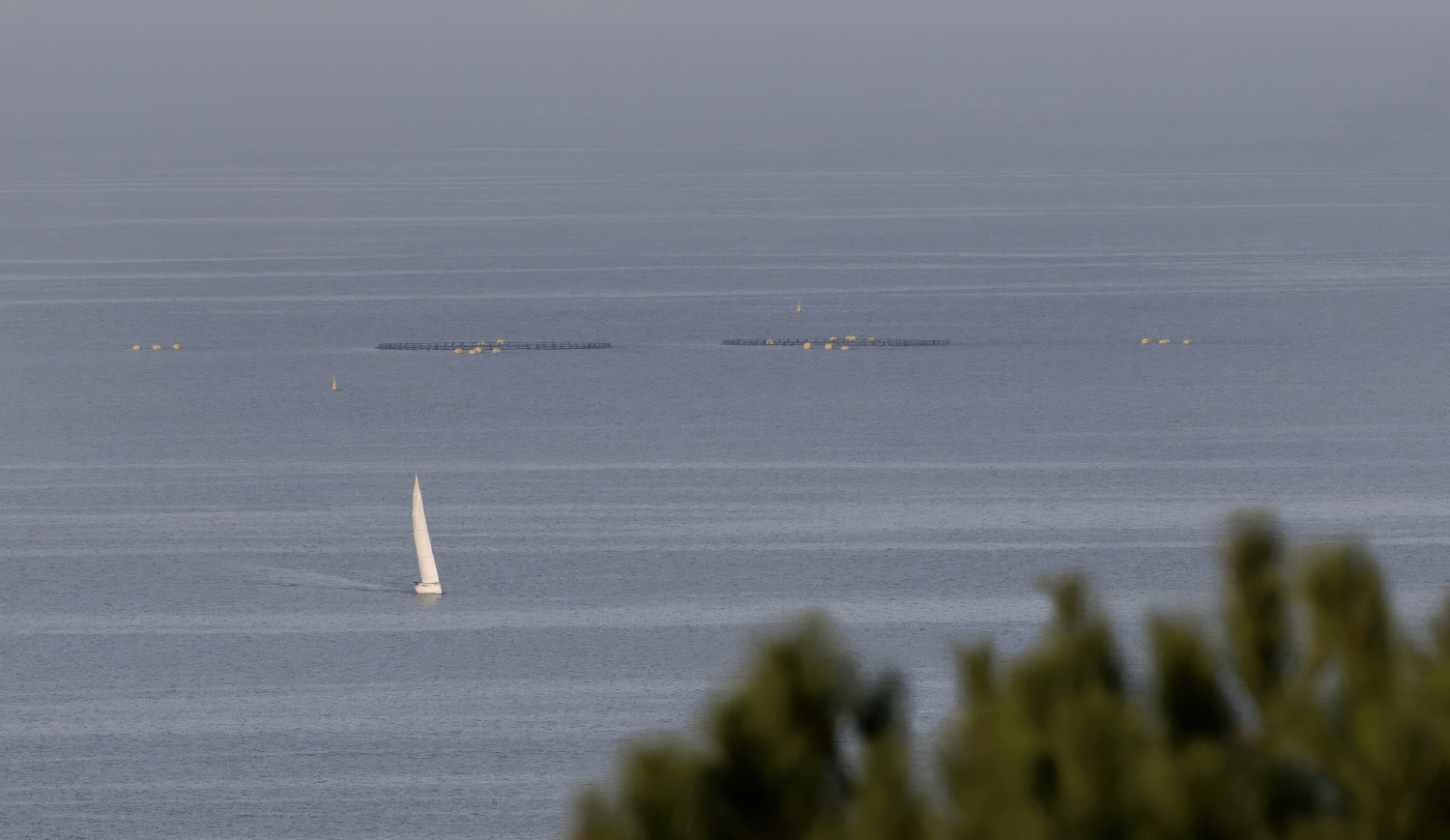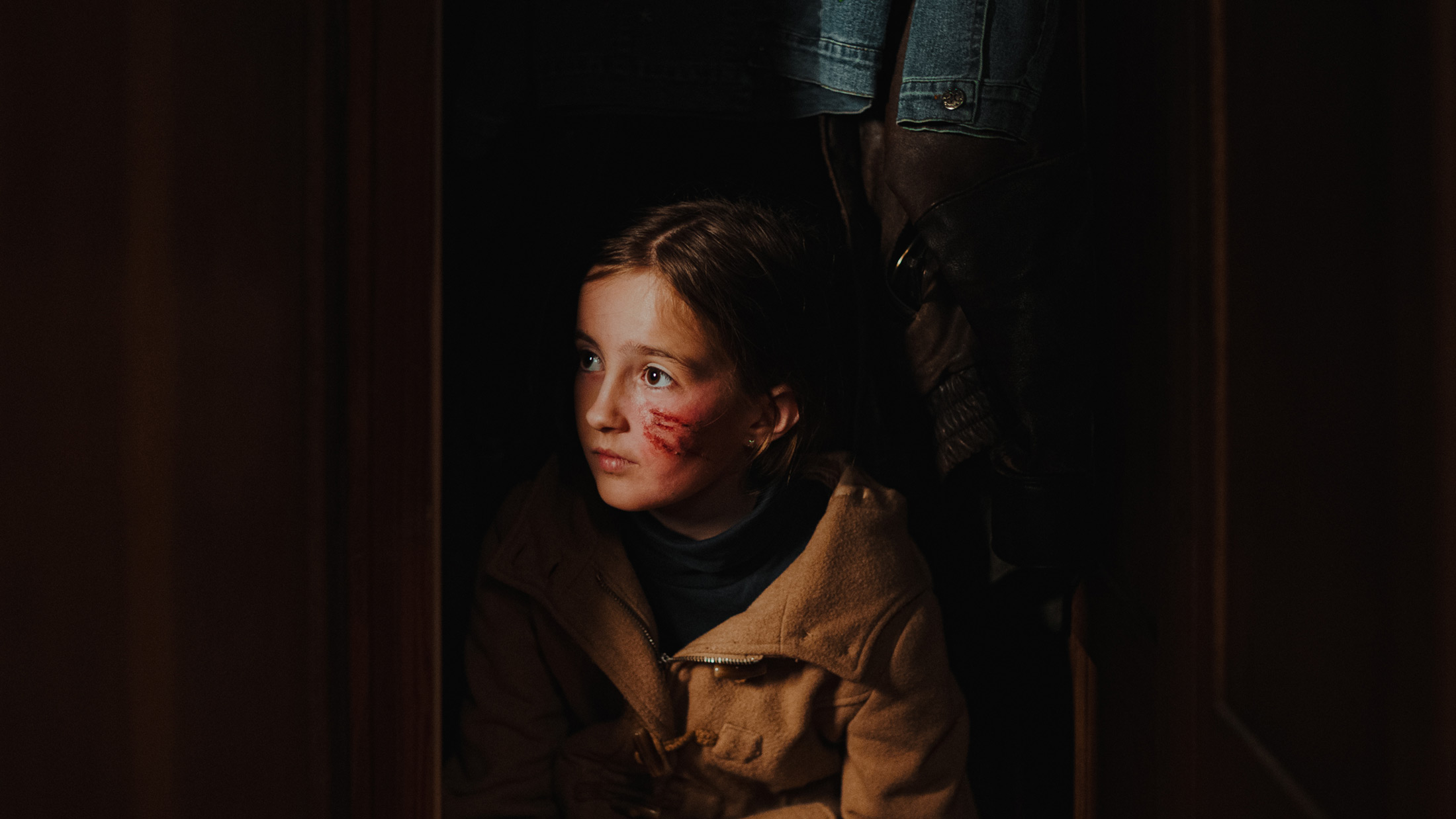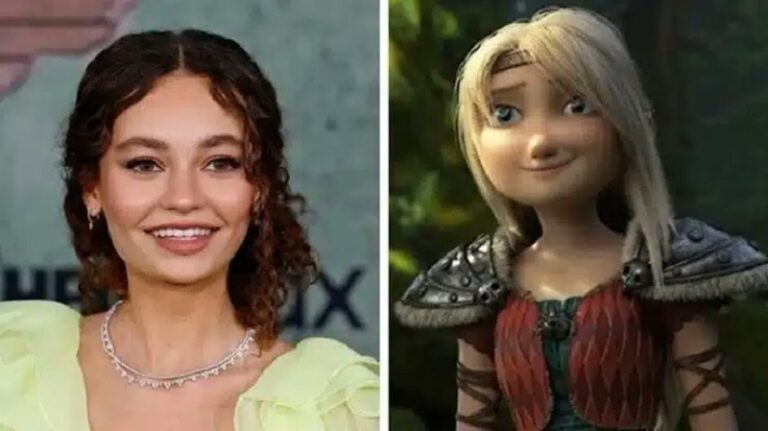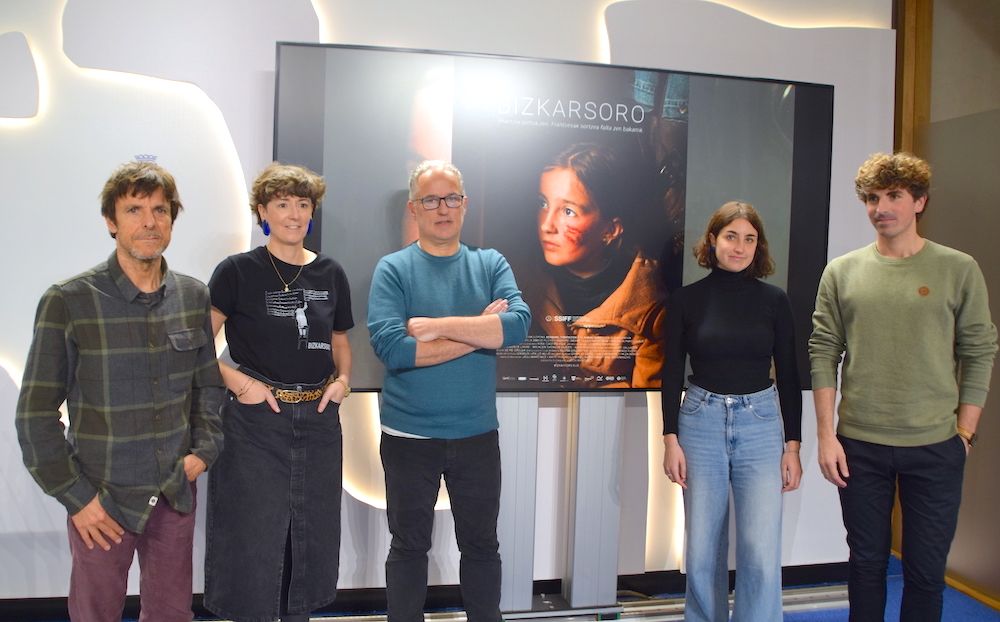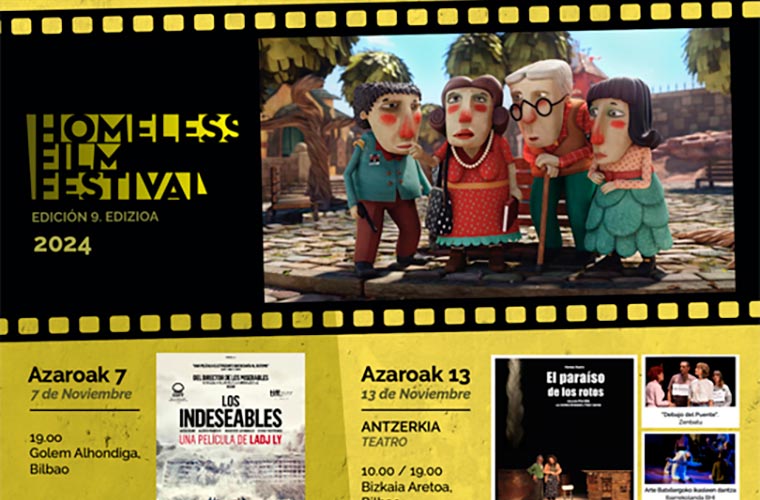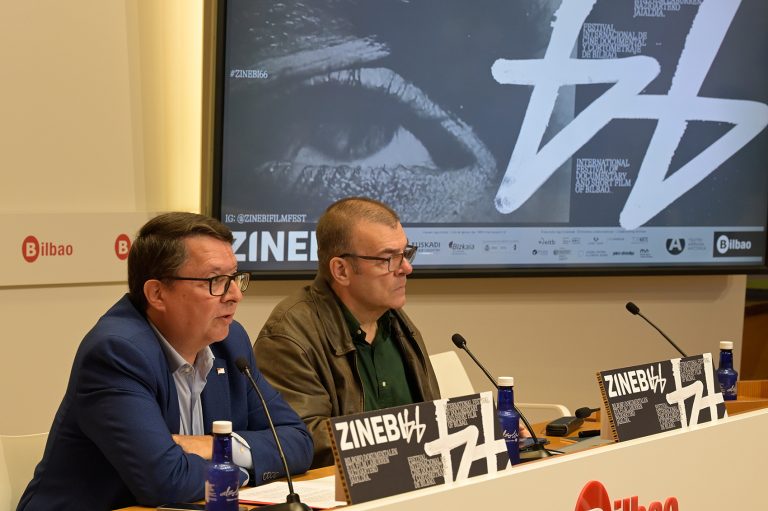"Sometimes I think we're bringing cultural graves to the surface."
- Josu Martínez (Bilbao, 1986), professor and filmmaker of the UPV/EHU, has completed the history of our film in Irudi and Basque. The cinema of our language. In the book The Language of Our Cinema (UEU, 2022). He has clearly written the beautiful history of film history, following and pulling the thread of the first film in Basque in 1956.

The title of his book is not in vain: In image and Basque. The cinema of our language. The language of our cinema. This is the linguistic question in the middle of our film history...
To begin with, it has to be said that in this book I tell the relations of the Basques with the cinema. Verbal and imaginary relationships. I have not made a film story, but a film culture story. I have compiled, among others, the speeches that have been built around film, the reception of Basques to film, the reaction of the spectator… “The question”, you said, and I believe that unlike many peoples of the world, Basques cannot see films in our language, or read newspapers, for example. And the main reason is that it took one hundred and ten years since film was created until our filmmakers started making films in Basque.
As you say, until 2005 he did not start making Basque films, but there were already films.
But until 2005, film was undesirable, the closing of eyes before film. Some even said it wouldn't be better to have no relation to film. Others should replace the word “film” with another name. Or [Piarres] As Lartzabal said, the Basques were condemned to do theater instead of making movies. The Basques used a lot of things, but they didn't make films in Basque. Aupa Etxebeste! started in 2005 a new era in the history of our cinema. parallel to completion.
What has the history of our film been like?
Petrala, ja, ja... Koldo Izagirre gave him the name of his book [Petral history of our film, Susa, 1996]. I would say that our cinema has evolved and that, in general, many trains have been lost. I would say that the history of Euskal Herria itself is that of our film, or that it has traveled the way parallel to it. The history of our cinema serves us to understand the history of our people. the Basque Country, the Basque Country, the Basque Country, the Basque Country, the Basque Country, the Basque Country, the Basque Country, the
"The history of Euskal Herria is that of our cinema"
In 2012, he found in Paris a copy of the film Ns Sor Leku, following the track of Andre Madrid, and wrote his thesis from the beginning of our film. Is it the seed of this book?
It's possible. When I found that work of the Hazmat Andre Madre, I felt exploratory. There were several books that talked about Basque cinema, or Basque cinema, because all the works were written in Spanish and were full of mistakes. I, on the other hand, was constantly discovering things that nobody said: mentions, testimonies and films. And I'm not Sherlock Holmes, nor do I have strange smells, but I thought I had to go to the Basque press to search, and if the film is from Iparralde I had to look in the Basque press from Iparralde. Xabier Lete was singing it, right? “We are illustrated by letters the newspapers,” that is, this book is made of letters by the newspaper, resorting to the sources.
But newspaper sources brought him to other sources. Viewers, for example.
One of the questions I was asked was: “Who could see the film?” The answer is: “Lots of people. Manex Pagola, Xarriton...” And through those viewers I got a lot of other threads, and I realized that the history of Basque film was still unwritten, and so I started, and in this play I followed. This book aims to bring to the surface an unknown story, the ones that are told in this book are very unknown, and that's their function, to make them emerge.

If it's a job about our film, before you?
The stories of Basque cinema have been made, if you like, in an inclusive way, in which it was always a section or subsection of film made in Basque. Because Basque films have always been more modest, with less money. This book therefore represents a change in the lens of the camera. According to the objective, things look one way or another, and thanks to that change of purpose things appear in the book that until now were not mentioned.
Basque film, Basque film and Basque film...
In the 1970s, everyone said that films should be made in Basque. In the 1980s, when it was possible to make films in Basque, Antton Ezeiza did not make films in Basque. The government began supporting the films at that time, the Basque government did not ask for them to be made in Basque, but for a duplicate copy to be given. There were few Euskaldunes working in the cinema, or nobody, and, therefore, you couldn't make films in Euskera.
Give a duplicate copy and it is already, those made with the Basque…
Antton Ezeiza said that this linguistic question arises when we speak Spanish, and I agree. Talking about “Basque film” is absurd. “Basque film is German”, another absurd. Its own name says “Basque film”, made in Basque. When we speak Spanish, we can say “Basque cinema” and get into everything, because we also talk about citizenship. If someone has another opinion, go ahead. I do not want a debate. If someone thinks that their cinema is Basque even if it is in Spanish, then they fix it. Let everyone think what they want. But things have changed a lot.
What do you mean?
That someday a Scotsman comes to you and I don't know why he makes a film in Basque: Picadero Y that an Argentinian comes and makes the film in Basque: Akelarre. And Eugene Greene, an American based in Paris, has two films in Basque and the third on the way. I feel them closer even to the birth in Bilbao, with the money from Madrid or Paris, than the director who does with his actors. Despite making a great film, which I will also like, that does not deny the linguistic issue. I believe, however, that it should be put off.
Before you've said now that we're writing the story of our late movie.
If I had started looking for our Sister Place two years later, it wouldn't have been that movie. In fact, I found Manex Pagola live in Xarrito and live in Paris to the widow of Andre Madre. Two years later all three were dead. For several reasons, the movie would have lost us forever, and I think along the way we've lost a lot of that. I've collected some quotes that we've been able to retrieve, but not movies. The research lines are open and the work to be found is waiting.
For example?
"Antton Ezeiza said that the linguistic question arises when we speak Spanish"
For example, Bizibide lantzen, a film narrated in 1974 by Joxemari Iriondo, commissioned by Luis Iriondo. As I say in the book, the film was made in Basque and then folded into English and Spanish. A surprise! The copies they keep are in English and Spanish, the Basque language has disappeared! Moreover, in the film library they did not know that the original of this film was in Basque. Now come to Laboral Kutxa to get the mark of a documentary made in 1974! Perhaps in the archives of Luis Iriondo? You know.
How many things have been lost along the way?
I don't know sabe.Luzearra [Ander Arzelus, San Sebastian, 1898 - Baiona, 1949] spoke of the intention to shoot at that time, in the 1930s. I don't know if we're going to recover anything. Nor do I know if the sound copy of our Sister Leku will appear. I do not think it will appear. Many things have been lost along the way. We have not had national libraries -- where is our story? In the oral testimonies, in the cardboard boxes, in the cameras, in the messy house of Euskaltzaindia… That work has not been done, and so we lose things. Sometimes I think we are talking like the Aranzadi, about spawning their remains, and bringing to us the cultural graves, those cultural holes that are spread out there and here and there.
The book has a very personal touch, it is not as cold and “objective” research as it is.
They are nothing but my personal opinion. At least in most cases. I speak in the first person, I offer my vision, I do not want to impose anything on anyone or establish the chair. The book is research work, but it has more essay, it's not objective and it doesn't want to be. They have imposed this on us: “Objectively, Basque film is…”. And I say: “Okay, you say that, but I think something else.” I don't have to say anything to anyone, but how I see the thing. Everyone has and must have their own opinion and defend their own opinion, argue. I have given some data in the book and made my interpretations. Others may. And it should.
Imagz and Euskaraz talk about the history of our cinema, you are also a filmmaker. Have you unified both aspects easily?
In part. For example, I have not analyzed in this book the period after 2005. In addition, it would be a topic for another work, since since 2005 more films have been made than between 1896 and 2005. That is why I have left that time for the epilogue. But it's also the second reason, which is that I'm a judge and a part. I could have made this story since 2005, but there could be people who, without mentioning myself, were angry with me, and having an enemy, or two, is good, but not so many enemies and all at once… Another reason not to talk about this new period is that that time is not over. This would be to freeze a moving image. That is what I say in the preamble: If we got an Oscar, where to set the limit, we could limit the time until we got to the Oscar, but if there's no milestone like this, I don't know.
You are a filmmaker…
I think yes, ha, ha…
We have a book about the history of our film, but it's a movie about that story.
Jokingly, they could make the film with the book prologue, with the text of Katixa Agirre. Ja, ja… I think in this book there are several stories, that you could make several films, that Basque television could also make series from films in the history of our cinema, but I am not hooking anyone. I believe that, as in Basque cinema, Basque television could make a department around other cultural events. If anyone wanted to help his inspiration and take advantage of the materials in this book, he would sell him rights, cheap! Ja, ja…
A conference for architects has just been held in Madrid to discuss the crisis of the professional architect. They have distinguished the traditional and contemporary way of being an architect. What is traditional? From the epic architect who appears in The Brutalist, where... [+]
Itoiz, udako sesioak filma estreinatu dute zinema aretoetan. Juan Carlos Perez taldekidearen hitz eta doinuak biltzen ditu Larraitz Zuazo, Zuri Goikoetxea eta Ainhoa Andrakaren filmak. Haiekin mintzatu gara Metropoli Foralean.









